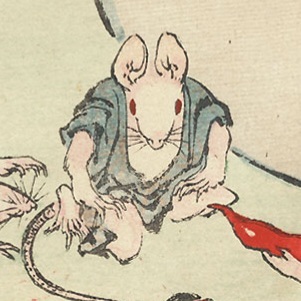Schools should help by exposing kids to books the kids are likely to want to read. Which are not always works of literature.
The obsession with Shakespeare puts a lot of students off literature
when shakespeare isn’t even fucking literature
dude was a PLAYWRIGHT
You see the same thing today with popular modern authors.
In 100+ year time the niche writers who spend years reworking their prose are still going to be niche, while the ultra popular authors who had a cultural impact and dozens of published books will be studied even if at the time they wrote they were trashed as being “not real literature” or “pop fantasy”.
I severely severely doubt things like King Killer Chronicle or anything Jensin or Abercrombie has wrote will endure as much as Sanderson. This makes people seethe.
A more recent example of this is Asimov, part of the reason everyone knows him isn’t that his writing was particular great. He just wrote a lot, that a lot of people liked. It was pulp Sci fi, but it’s defined discussions generations later.
Imo Faulkner and Joyce are vastly overrated by people obsessed with prose, to the point that they fail to communicate their stories adequately. They get trotted out by English literature teachers, and frankly speaking snobs, and there are some cool uses of the prose in I. E. The Sound and The Fury, but I wouldn’t reread it and I wouldn’t recommend it to anyone to actually read. It just wasn’t a particularly interesting book aside from the curious abuse of the language.
To get even pulpier sometimes I pick up a 40k novel and churn through it because it’s fun. It doesn’t demand me think much about it, it’s just telling me a story in a universe I’m familiar with.
You talking about “Day of Ascension” by Adrian Tchaikovsky? That’s more than everything Tchaikovsky writes is fun! 😉
My mum is also an author and good friends with Adrian. Never thought I’d see him named in a Lemmy comment section of all places. Small world?
Anyway, I think reading and literacy is an essential skill for everyday life, exploring arts and understanding things to a greater level of comprehension. However, the way it is taught in schools is absolutely monotonous and egregiously boring. I recently finished my GCSEs and even though school was incredibly easy for me, I almost had no motivation to do my own independent revision or study for literature. The structure of how it is taught and what is taught just sucks. This could really go for the entire school system up until college, but it is exemplified in high school. I love reading, but when it is presented in such a way it becomes a task rather than a thing to enjoy. Far too many people give up on reading because of bad experiences in school, and many people, especially in disadvantaged areas, are surrounded by a culture that is against education/the system in general. The UK is very classist.
Additionally, reading is not just about reading books exclusively. I have read a few books and pieces of work I found enjoyable by myself, especially politically motivated books such as the Grapes of Wrath. But, most of my reading and literary education has come from reading articles/forums online and playing games such as the Witcher or other RPGs. You can learn quite a lot if you are curious and have something to hold your interest. Sure, the dialogue is spoken, but subs are on by default and always a helpful read. Similarly, music can be another way to express or learn about literature. The main takeaway is that reading can be enjoyed in many forms, and I think it is best done in a multitude of ways. Books, articles, games etc. People will find something they enjoy in all categories if given the opportunity.
It’s just about getting kids reading. Anything. It’s a muscle that needs to be as strong as people can get it. Forcing classic literature on kids is going to work for some kids, but it turns off far more.
Adrian is great. Everything of his I’ve read has been fun and clever. I always recommend him to anyone who enjoys scifi.
Shakespeare is the ONLY author that has to be taught in schools by government directive. Everything else is at the discretion of exm boards and teachers.
No idea why they don’t put that in drama class. You know so you can actually learn and perform the plays he wrote.
exactly. Reading is a cheap and fun hobby. But you gotta find enjoyable books!
Schools approach literature in such a stuffy and formal manner too, they would probably make even the most interesting books a chore.
We need to foster a better attitude towards reading, and that starts with letting kids enjoy the books they are reading.
Exactly. They just need to be reading, it.barely matters what.
Exactly. Show them examples of lots of types of books. Include some types of SciFi and fantasy because that’s what a lot of enjoying reading. They always seem looked down on, but they shouldn’t be.
I can’t think of many books my school had us read that I enjoyed even a little. I think it was grade school where we were reading The Great Gatsby and such. Compared to all of the books I read b/t classes on my known, they just weren’t relevant or interesting.
It’s not surprising. Reading for pleasure was phased out of schools a long time ago and replaced by “Literacy” and Accelerated Reader where kids are tested on the books they read and have to finish them as fast as they can.
We have a neo-liberal school curriculum in the UK that only sees reading as a function of employment or cultural indoctrination (in the case of the statutory requirement to teach Shakespeare and that no non-UK writers are allowed to be studied at GCSE).
Not sure about that last bit, Of Mice and Men is a pretty standard GCSE text and it’s written by an American
Here’s a a report fron 2014 about it:
https://amp.theguardian.com/education/2014/may/25/mockingbird-mice-and-men-axed-michael-gove-gcse
Here’s a a report fron 2014 about it:
https://amp.theguardian.com/education/2014/may/25/mockingbird-mice-and-men-axed-michael-gove-gcse
As an ex-English teacher I can assure you that’s the case. It changed in the 2016 reforms (when, among other things grades turned into numbers). It’s the same for To Kill a Mockingbird, another much-taught US text.
Some schools use Of Mice and Men as class readers in Year 8 and 9.
Well that’s daft, they’re both perfectly good books. I finished my gcse’s in 2016 so must’ve narrowly missed it
In elementary school we weren’t even allowed to check out books from the library if the teacher didn’t think we could pass the AR test because it would lower the class average.
I’ve witnessed children forced to read three or four thin “books” in an Accelerated Reader lesson so they can be tested 3-4 times to improve their “data” / test results.
I’m HIGHLY sceptical about the quality of the data the tests produce (reading ages and some sort of AR “progress”).
The whole idea of ACCELERATING reading of books is just repulsive and wrong. Some children (and adults) get more out of a book by simply reading at their own pace and enjoying it.
Most adults don’t read in their spare time.
I’m one of them and it sucks.
I used to read more but lately I just can’t focus on a book or dedicate the time.
I do a lot more audiobooks or learning podcasts but that’s mainly so I can do something else at the same time.
I’m trying to actually spend more time reading articles rather than skim them.
If it’s anything like it is here in the US… what fuckin’ spare time? I mean, I remember having some when I was in grade school back in the 90s, but you look at kids nowadays and it looks like every waking second is scheduled, and what isn’t … is scheduled for homework. The fuck is left?
It depends how old they are. Kids in primary school at least have a decent amount of free time. School doesn’t start crazy early in the UK, and there’s not much homework when they’re young.
They only looking at books? Lots of reading in many video games.
Not the same thing?
Someone hasn’t read the Lusty Argonian Maid.
Such strong legs and shapely tail.
deleted by creator
True, there’s a bit of nuance.
READING IS READING!
I remember my local library having reading challenges when I was younger. You’d fill out a little pamphlet with stickers for each book you finished. It was great fun! Do they still do similar things?
I think if my parents hadn’t taken me to the library I wouldn’t have been nearly as interested in reading.
I remember doing library reading challenges when I was a kid. A trip to the library and stopping at the chip shop on the way home used a be a weekly thing for me.
Sadly about 800 UK libraries have closed since 2010, so many children will no longer have access to a library. They may never have even used one at all.
My childhood experience was very similar - pop to the library and stop off at the café. The local library near me was a beautiful old rectory building covered in ivy and thankfully it’s still open.
It’s extremely sad to hear about the closures. Funding cuts can be so short-sighted…
Can’t speak to nationwide but the local (Leicestershire) Libraries definitely had something going on across the summer holidays in this vein.
When I was in elementary school in Germany there was a funny little mobile library. A truck with some shelves with books in it that directly drove to elementary schools and where kids could borrow books. They could give them back either the next time the mobile library showed up or at any libary directly.
It was not only comfortable, people were basically peer pressured in borrowing a book since everyone was doing it and it was kinda of an event when the mobile library arrived.
This is US-based unfortunately. But our libraries do Summer Reading Challenges. The one near me are based on hours read instead of books finished and have different tiers for age ranges, including adults. There are little prizes for different goals and it really drives engagement with reading for kids when school isn’t in session.
They read the books that the schools makes them read, and just assume that all the other books are just as boring, bad, and waste of time.
I’m pretty sure that was true 30 years ago when I was in school.
Unless they’re using a screen reader everybody is reading all day long.
This is the best summary I could come up with:
More than half of children and young people do not enjoy reading in their free time, according to a survey from the National Literacy Trust (NLT).
The charity said reading enjoyment was lowest among disadvantaged children, and warned that the research should serve as a “wake-up call”.
Of the 64,066 children surveyed, 43% said they enjoyed reading in their free time – down 15 percentage points from a peak of about 58% in 2016.
The research also indicated that children are more likely to read if they have a quiet space, support from role models, and access to books that represent them.
She added: “We cannot let a generation of children lose out on the benefits that reading can bring” – benefits that include “inspiring the imagination, the comfort and escape of another world, and the very real and impactful literacy skills it supports”.
Simon urged authors, publishers, schools and families to work together to “make sure every child has the safe space and access to books to start them on their reading journey”.
The original article contains 414 words, the summary contains 174 words. Saved 58%. I’m a bot and I’m open source!
Far too busy gaming on taxpayer funded Playstations to read.










